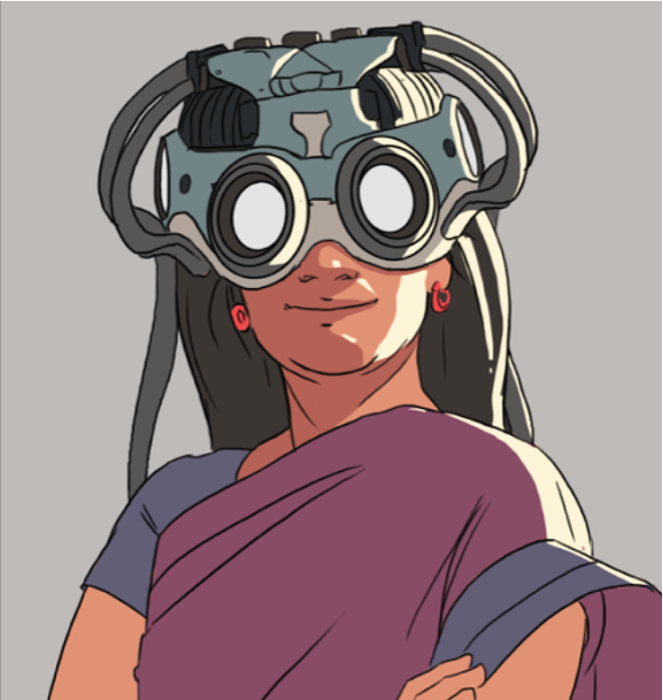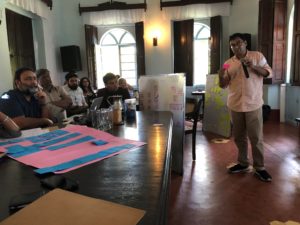The Future of Work in India | Tandem Research hosts Scenario Workshop in Goa
Digital Solutions for Sustainability

Building on the discussions around the Future of Work at the EPF Think Week 2017, EPF-members Tandem Research (India), CIPPEC (Argentina) and HSRC (South Africa) launched a project that seeks to shed light on future socio-economic and particularly employment impacts of technological change in the specific contexts of their political economies in 2030 and beyond. The project builds on the assumption that rapid technological change will have major disruptive effects on our societies, which however will be specific to different socio-economic settings, and are unpredictable in their full transformative force for the longer term as the 4th Industrial Revolution (4IR) is only beginning to unfold.

In this context, Tandem Research with support from EMSD under its Digital Economy Initiative convened around twenty policy analysts, economists, (social) entrepreneurs and representatives from academia, media and civil society in Goa in January 2018 to identify relevant triggering factors as well as global and India-specific trends that will impact employment conditions, labor rights, social protection schemes and gender relations etc. Based on these, the group built four alternative scenarios for the likely impacts of technological change on India’s socio-economic system and labour markets respectively, which show varying degrees of social cohesion and extent of permeation by 4IR technologies. The policy needs these scenarios imply in order to minimize downsides and reap maximum benefits for society, welfare and economic prosperity, are currently being developed via an online questionnaire and will be tested in interviews with different societal stakeholders.
 Similar scenario-building exercises combined with current available data and analysis have meanwhile also been conducted in Argentina by CIPPEC and in South Africa by HSRC. The projections into the future of work in these countries and the resulting policy options will contribute to the work and recommendations of the T20’s Task Force on the Future of Work and Education in the Digital Age, reflecting the G20’s priority topic under the Argentinian presidency.
Similar scenario-building exercises combined with current available data and analysis have meanwhile also been conducted in Argentina by CIPPEC and in South Africa by HSRC. The projections into the future of work in these countries and the resulting policy options will contribute to the work and recommendations of the T20’s Task Force on the Future of Work and Education in the Digital Age, reflecting the G20’s priority topic under the Argentinian presidency.
Additional Information
Find the workshop agendas and handbooks here..
(A)Link
(B)Link
Photo credit: Antje Uhlig | For more information, please contact antje.uhlig@giz.de.




 Similar scenario-building exercises combined with current available data and analysis have meanwhile also been conducted in Argentina by CIPPEC and in South Africa by HSRC. The projections into the future of work in these countries and the resulting policy options will contribute to the work and recommendations of the T20’s Task Force on the Future of Work and Education in the Digital Age, reflecting the G20’s priority topic under the Argentinian presidency.
Similar scenario-building exercises combined with current available data and analysis have meanwhile also been conducted in Argentina by CIPPEC and in South Africa by HSRC. The projections into the future of work in these countries and the resulting policy options will contribute to the work and recommendations of the T20’s Task Force on the Future of Work and Education in the Digital Age, reflecting the G20’s priority topic under the Argentinian presidency.